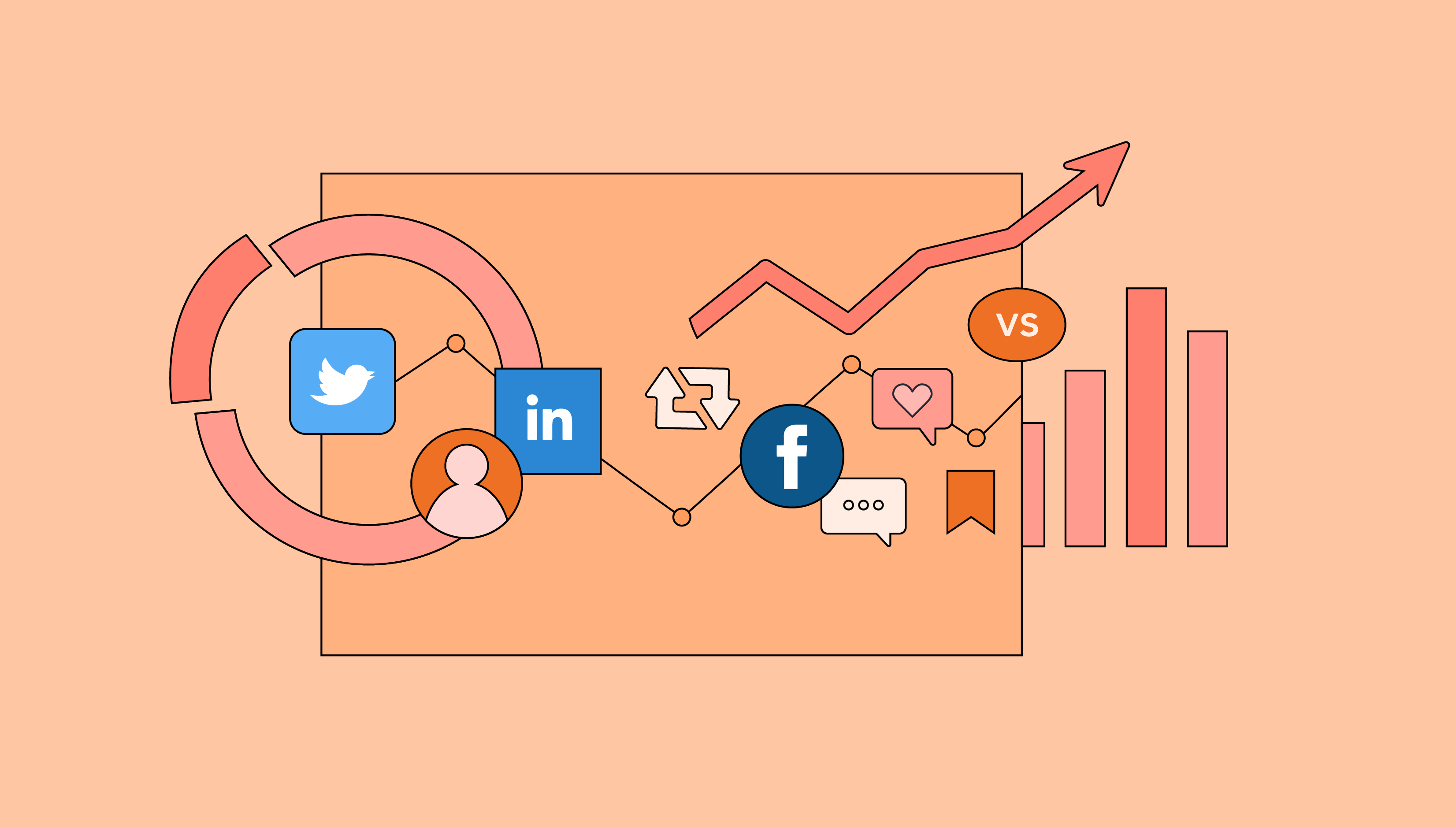Cats can survive without food for about two weeks if they have water. However, their health will decline after just a few days without food.
Cats are resilient animals, often known for their independence and ability to fend for themselves. Nonetheless, pet owners must understand the importance of a regular feeding schedule for their feline friends. A cat’s health can deteriorate quickly without proper nutrition; this is especially true for water, which they cannot go without for more than a few days.
Ensuring a balanced diet for your cat is critical to maintaining its health and well-being. Skipping too many meals can lead to a severe condition known as hepatic lipidosis or fatty liver syndrome, which can be life-threatening. Thus, monitoring your cat’s food intake is vital, and consult a vet immediately if they stop eating.

Credit: sproutsocial.com
Introduction To Feline Nutrition
Cats need a balanced diet for good health. Their body requires protein, fat, vitamins, and minerals. A cat’s daily calorie needs depend on age, weight, and activity level. Kittens and active adult cats need more food. Older cats may need less.
Without enough food, cats can develop health problems. They might get liver issues, known as hepatic lipidosis. This can happen after two days without eating. Longer without food can be even more harmful. Cats should not go more than two days without food.
| Factor | Impact on Food Requirement |
|---|---|
| Age | Kittens need more; older cats need less. |
| Activity level | More active cats burn more calories. |
| Health | Health issues can change how much food a cat needs. |
Assessing The Limits Of Feline Fasting
Cats often fast without harm for up to 48 hours. During average fasting durations, healthy adults tap into stored fat. But beyond two days, their health may decline.
Kittens, senior cats, and those with health issues fare worse. They need frequent meals to maintain health. Such cats can suffer complications if fasting exceeds 24 hours.
Owners should note that abnormal behavior or lethargy may signal starvation. Cats show starvation symptoms through weakness and lack of energy. These signs mandate a vet visit to prevent serious consequences.
| Cat Type | Maximum Fasting Duration |
|---|---|
| Healthy Adult | 48 Hours |
| Kittens/Seniors | 24 Hours |
The Criticality Of Hydration In Cats
Cats need water more than survival food. They cannot live long without staying hydrated. A cat may only last three days without water, although food can be skipped for longer. It’s critical always to provide fresh water to your feline friend.
Dehydration in cats is dangerous. Early signs include lethargy, dry mouth, and decreased appetite. Severe cases may lead to kidney failure or worse. Monitoring your cat’s water intake and watching for these symptoms is essential.

Credit: catalyst.nejm.org
Medical And Behavioral Aspects Of Feline Anorexia
Cats often hide their illness, making it hard to notice when they stop eating. Medical issues such as dental problems, infections, or organ failure can lead to a loss of appetite. Other conditions like diabetes, cancer, or intestinal problems also play a significant role in reducing their desire to eat.
Apart from medical conditions, stress, environmental changes, or poor nutrition can affect a cat’s eating habits. Cats are creatures of habit, and any change can lead to reduced food intake.
It’s essential to observe your cat’s behavior and eating patterns. Concerns should arise if a cat goes without food for more than 24 hours. Immediate veterinary assistance is critical, as extended fasting can lead to serious health issues like liver disease.
Managing And Mitigating Risks Of Food Deprivation
Cats may survive without food for up to two weeks. Yet, they need constant water intake to stay healthy. Introducing fasts or new diets should happen slowly and carefully. It ensures your cat’s body adjusts appropriately without stress.
Nutritional support is crucial for cats recovering from malnourishment. A vet should oversee their diet plan, ensuring a balanced and gradual return to regular feeding. This process supports steady health recovery.
Preventing food deprivation involves a consistent feeding schedule. Cats thrive on routine, so reliable feeding times are essential. Careful monitoring of food intake keeps your cat’s health in check. Seek professional advice for any diet changes.

Credit: catalyst.nejm.org
Frequently Asked Questions On How Long Can Cats Go Without Food
What Is A Cat’s Survival Time Without Food?
Cats can survive for about two weeks without food, but this is highly inadvisable. Their health rapidly deteriorates without proper nutrition, leading to potentially fatal conditions. It is crucial to address a cat’s refusal to eat promptly.
Does Water Intake Affect A Cat’s Food Needs?
Water is essential for cats, even more so than food. While they can go without food for a few weeks, dehydration can cause serious health issues within three days. Adequate water intake can slightly prolong their survival without food.
Can Indoor Cats Go Longer Without Eating?
Indoor cats do not necessarily go longer without eating compared to outdoor cats. Surviving without food depends more on their health and fat reserves than their living environment. It is critical to monitor their eating habits regardless of their setting.
What Health Risks Come From Cats Not Eating?
When cats stop eating, they risk developing hepatic lipidosis, a severe liver disease. Additionally, they may face muscle wasting, organ failure, and a weakened immune system. These health risks underline the importance of immediate veterinary attention if a cat stops eating.
Conclusion
Understanding your cat’s nutritional needs is critical. While felines can survive without food, this is not ideal. Your pet’s health depends on regular, balanced meals. Watch for any changes in eating habits and consult a vet if concerns arise.
Early intervention can safeguard your beloved companion’s well-being.